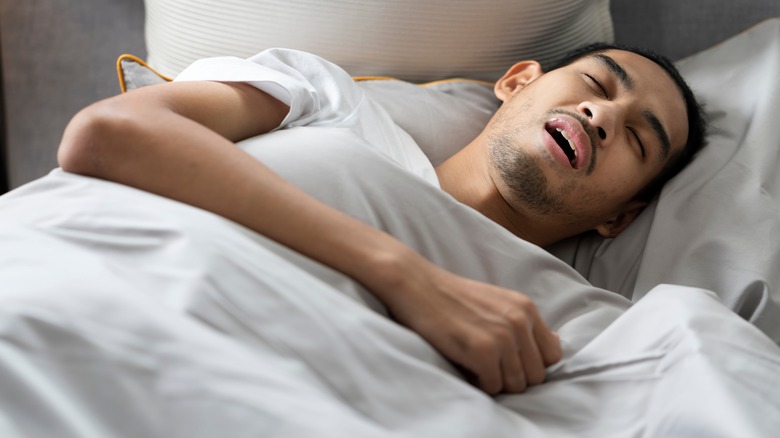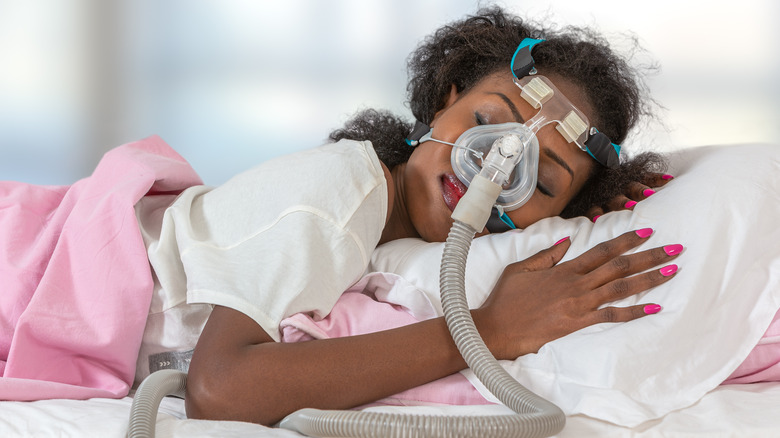Are Your Bones And Teeth At Risk If You Have Sleep Apnea?
Sleep apnea affects more people across the country than you might think. In fact, up to 30% of individuals in the U.S. are said to experience this sleep disorder, according to Sleep Foundation.
Characterized by loud snoring, daytime sleepiness, choking or gasping sounds while asleep, dry mouth, restlessness, morning time headaches, and more, obstructive sleep apnea is the result of an airway blockage in the back of the throat that subsequently hinders airflow.
Some individuals may stand at an increased risk for obstructive sleep apnea, such as those who smoke, those with a higher body mass index (BMI), aging adults, those with a family history of the condition, or those with certain heart or lung issues (via Sleep Foundation). If left untreated, the sleep disorder may lead to other potential health issues. This includes hypertension, heart disease, non-alcoholic fatty liver disease, mood disturbances, and type 2 diabetes, among others. Additionally, some studies have shown that sleep apnea has the potential to impact bone health (via University at Buffalo).
Possible link between sleep apnea and bone mineral density
Researchers from a 2022 study set out to analyze the relationship between sleep apnea and bone mineral density (BMD) in adults. Thirty-eight adults were divided into two groups based on whether or not they were diagnosed with obstructive sleep apnea syndrome (OSAS), as noted in a press release from the University at Buffalo. Using X-ray technology to analyze areas of participants' necks and heads, BMD was found to be substantially lower in those with OSAS compared to the group who did not have OSAS.
While further research is needed, Thikriat Al-Jewair, associate professor of orthodontics and director of the Advanced Education Program in Orthodontics at the UB School of Dental Medicine, commented on the significance of the study outcomes: "While the link between obstructive sleep apnea and low bone mineral density has yet to be fully explored, this study offers new evidence on their connection that could have several implications for orthodontic treatment."
Treatment for obstructive sleep apnea
For those with obstructive sleep apnea, the key to treatment is to facilitate the unobstructed movement of oxygen through one's airways while sleeping. This can be achieved through positive airway pressure therapy using a prescription PAP device (via Sleep Foundation). When placed over the face, the device works by pumping a stream of pressurized air from a machine through a tube to keep one's airways clear.
For those with tissue creating a blockage in their airways, surgery may be an alternative treatment option, according to Sleep Foundation. Otherwise, certain lifestyle changes can also prove helpful to curb snoring and improve one's overall health. Such factors include getting routine physical activity, reducing alcohol consumption, or reducing BMI through weight management. Additionally, because sleeping on one's back can aggravate symptoms of sleep apnea, repositioning one's self for sleep can also be helpful. In doing so, you'll likely find yourself getting a more restful night's sleep.



